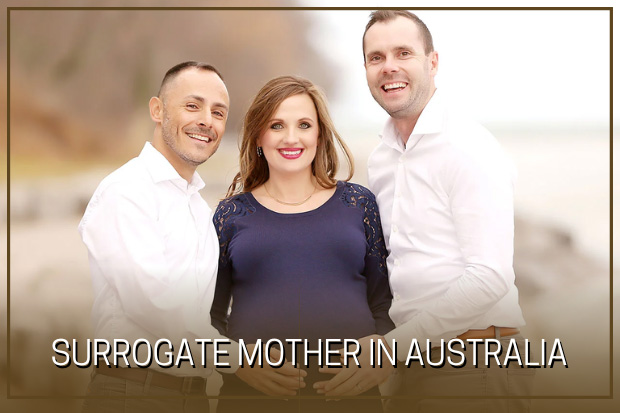Surrogacy arrangements vary significantly between different countries, and each has its own set of rules and regulations. So, when we talk about a country like Australia, is surrogacy legal in Australia is a common question that arises. Surrogacy for intended parents in Australia is regulated at a state level, and this is where the laws may differ between states. However, there are some general points that differentiate surrogacy in Australia from some other countries.
Factors that differentiate surrogacy in Australia from other countries
Commercial Surrogacy: Commercial surrogacy is illegal in all Australian states and territories. This means that a surrogate mother cannot receive any payment or benefit for her role as a surrogate, beyond reimbursement for medical and other reasonable expenses directly related to the pregnancy and birth.
Altruistic Surrogacy: Only altruistic surrogacy for intended parents in Australia is permitted. Talking about altruistic surrogacy, the surrogate mother does not receive any financial gains in this kind of arrangement and will only be paid for her medical costs.

International Surrogacy: Some Australian states have laws that make it illegal for residents to enter into commercial surrogacy arrangements overseas. So, they either have to give up on their hopes to pursue surrogacy, or proceed with some shady international surrogacy agency in Australia in the same regard.
Parental Rights: In some states, the surrogate and her partner (if she has one) are the legal parents of the child at birth. Besides, during surrogacy for intended parents in Australia, IPs must then apply to the courts to have the child’s parentage transferred to them, usually several weeks or months after the birth.
Pre-Surrogacy Counseling: In many Australian states, it is a requirement that all parties involved in a surrogacy arrangement (the intended parents and the surrogate mother) undertake counselling and legal advice prior to proceeding with the surrogacy arrangement.
Surrogate’s Autonomy: The surrogate mother retains all rights to make decisions regarding her health and the pregnancy, including the right to terminate the pregnancy. Moreover, this decision cannot be legally overridden by the intended parents.
Age and Relationship Status: Generally, to be a surrogate mother in Australia, the woman must be over 25 years old and have already given birth to at least one child. Additionally, some states require that the surrogate be in a stable relationship.
Remember that laws and regulations regarding surrogacy can change. So, it is recommended to always consult with a local legal professional or a specialist in family law to get the most accurate and up-to-date information when asking is surrogacy legal in Australia in your particular region.
What does Australian Family law say about Surrogacy?
 Australian family law regarding surrogacy is governed by both federal and state legislation. That said, it’s important to note that surrogacy laws can vary between different states and territories in Australia. Moreover, here are some key points that generally apply to surrogacy under Australian family law:
Australian family law regarding surrogacy is governed by both federal and state legislation. That said, it’s important to note that surrogacy laws can vary between different states and territories in Australia. Moreover, here are some key points that generally apply to surrogacy under Australian family law:
Altruistic Surrogacy
Commercial surrogacy for intended parents in Australia, where the surrogate mother receives payment beyond reasonable expenses, is generally prohibited across all states and territories in Australia.
Moreover, only altruistic surrogacy, where the surrogate does not receive financial gain beyond medical and other reasonable expenses directly related to the pregnancy and birth, is allowed.
Parental Orders
In most Australian states and territories, the intended parents must apply to the court for a Parentage Order to transfer legal parentage from the surrogate (and her partner, if applicable) to the intended parents. Besides, this order extinguishes the legal rights and responsibilities of the surrogate and establishes the intended parents as the legal parents of the child.
Consent Requirements
The intended parents and the surrogate (and her partner, if applicable) must provide their informed consent to the surrogacy arrangement. Also, the parties involved are usually required to undergo counselling and receive independent legal advice before entering into the arrangement.
Eligibility Criteria
Each state and territory in Australia has specific eligibility criteria for individuals or couples seeking to undertake surrogacy. Moreover, these criteria typically include factors such as age, marital status, and medical or fertility-related circumstances.
Best Interests of the Child
The court will consider the best interests of the child as the paramount consideration when deciding on surrogacy matters. This includes considering factors such as the child’s emotional, physical, and psychological well-being.
So, if you’re wondering is surrogacy legal in Australia, the answer depends heavily on the region. It’s important to consult with a local legal professional or a specialist in family law to obtain the most up-to-date and accurate information regarding surrogacy laws in your specific state or territory. Besides, laws and regulations may change over time, so seeking legal advice is crucial to navigating the surrogacy process in Australia effectively.
Why you should proceed with caution regarding surrogacy in Australia?
When thinking about surrogacy in Australia, it’s important to proceed with caution for a number of reasons:
Legal Difficulties: Australia’s surrogacy laws can be complicated and differ between states and territories. Hence, understanding the specific legal requirements and procedures applicable in the country or region where you live or intend to use a surrogate is essential. Moreover, failure to follow the rules can result in legal issues and make establishing parental rights more challenging.
On the other hand, commercial surrogacy is prohibited because surrogate mothers in Australia can only receive financial compensation above and beyond reasonable expenses. Besides, commercial surrogacy can come with harsh penalties, such as fines and jail time. So, it is crucial to follow the law and make sure that any surrogacy agreements are charitable in nature.
International Surrogacy
Legal restrictions in some Australian states prevent citizens from participating in surrogacy contracts abroad via an international surrogacy agency in Australia. That said, these regulations were put in place to safeguard the welfare of the child and shield surrogate mothers from possible exploitation. So, if you are thinking about doing international surrogacy, it is very important to know and follow the rules. Anyone considering it should first ask themselves: Is surrogacy legal in Australia for my specific situation?
On the other side, the emotional and psychological aspects of surrogacy should be taken into account. Besides, the child, intended parents, surrogate mother, and others may all experience complex emotional dynamics as a result of the process. Hence, it is crucial to carefully consider the surrogacy journey’s potential emotional effects and to make sure that everyone involved receives the right counselling and support throughout.
Financial Considerations
Despite the fact that commercial surrogacy is forbidden in Australia, there are still expenses related to surrogacy, such as those for counselling, legal counsel, and medical care. So, to prevent financial strain, it is crucial to carefully plan and budget for these expenses.
Changing Laws and Regulations
Surrogacy laws are subject to change, so it’s crucial to keep up with the most recent court decisions. What is true and allowed now might not be so in the future. Hence, you can navigate any legal changes and ensure compliance with current laws by speaking with a legal expert who specialises in family law.
Final words
In order to ensure you understand the legal framework and have the necessary support throughout the surrogacy process in Australia, it is advised to seek professional guidance from a qualified family law attorney or a reputable surrogacy agency due to the complexity and potential legal and emotional challenges involved. Always start by asking yourself: Is surrogacy legal in Australia in your state, and proceed accordingly with expert advice.



No Comments